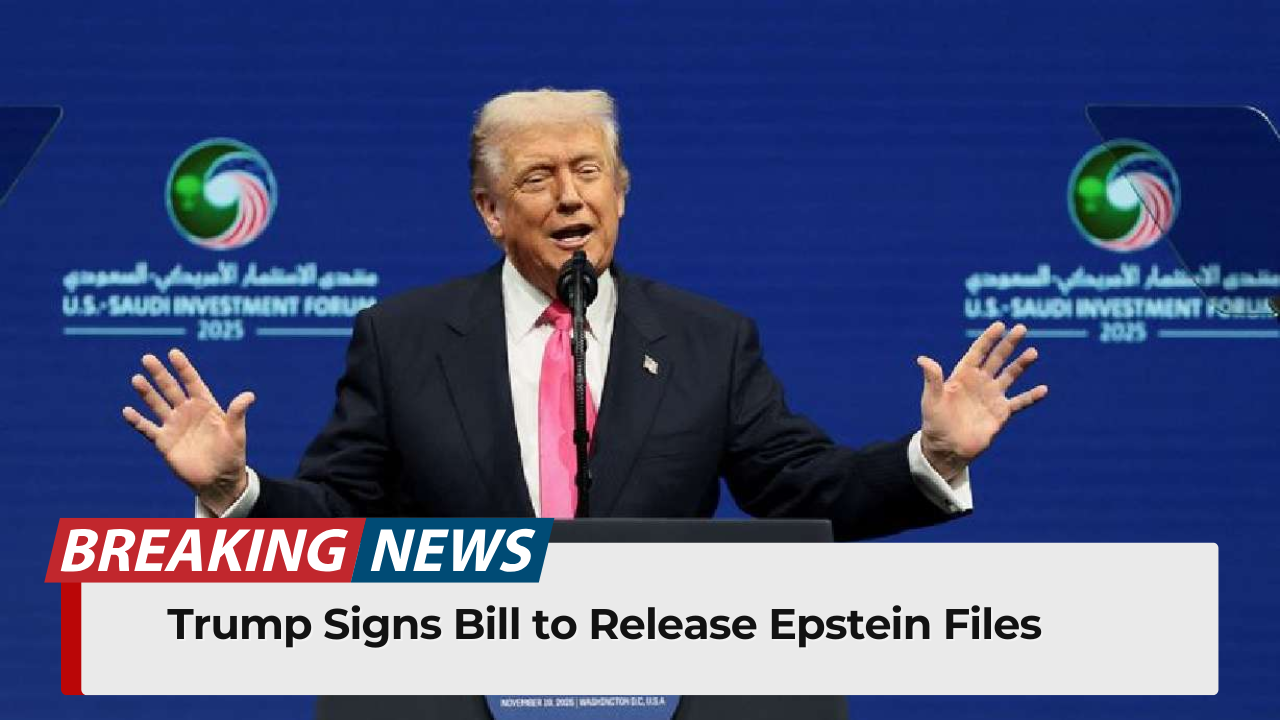President Donald Trump has signed new legislation requiring the Department of Justice (DOJ) to release long-requested documents related to the federal investigation of Jeffrey Epstein, a decision that could reveal previously undisclosed details about Epstein’s activities and connections with influential public figures.
The bill, backed by bipartisan majorities in both chambers of Congress, directs the DOJ to disclose investigative material within 30 days, with certain redactions allowed to protect victims’ identities and safeguard any active investigations. The release is expected to be one of the most scrutinized document disclosures in recent years.
A shift in Trump’s position
According to congressional sources, Trump had privately urged Republican lawmakers to oppose the measure, arguing that releasing internal investigative records could set a precedent he believed might weaken presidential authority. But as support for the bill grew across party lines, the White House reversed course.
Trump publicly celebrated the bill’s passage on social media, saying the release would expose “the truth” about Democrats he claims had associations with Epstein. His comments come after months of scrutiny over how his administration has handled the case and his own past public comments amplifying theories surrounding Epstein’s death.
DOJ confirms release timeline
Attorney General Pam Bondi announced that the department will comply with the law and release available material within 30 days. She emphasized that the DOJ aims to provide “maximum transparency,” though she clarified that certain categories of information—including victim details and items tied to ongoing investigations—will be withheld under the law.
For official Justice Department transparency guidelines, see the U.S. Department of Justice FOIA portal.
Limits on the document release
The legislation permits the DOJ to redact:
- personal information of Epstein’s victims
- documents that could jeopardize active investigations
- sensitive material identified by national security agencies
This means the upcoming release may not provide a complete account of Epstein’s network or his criminal activity.
Previous efforts to unseal grand jury transcripts related to Epstein and Ghislaine Maxwell—who is currently serving a 20-year federal sentence for sex trafficking—were rejected by federal courts, which ruled that grand jury secrecy laws prevented their disclosure.
Public distrust and political implications
Polling data shows widespread public skepticism about government transparency regarding the Epstein investigation. A Reuters/Ipsos poll found that only 20% of Americans approve of Trump’s handling of the case. Majorities across both political parties believe the government is withholding information related to Epstein’s associates.
Trump recently directed the DOJ to investigate several Democratic figures who previously interacted with Epstein. Officials may decide not to release certain information tied to those individuals if doing so would interfere with ongoing investigative work.
For historical context on the Epstein case, refer to the Federal Bureau of Prisons documentation and the U.S. Attorney’s public statements on earlier prosecutions.



